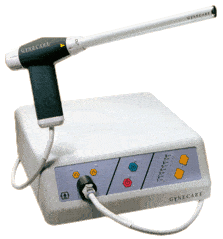
Canada’s federal health agency has joined the U.S. Food and Drug Administration (FDA) in warning women of the risks of spreading undetected cancer through the use of power morcellators in laparoscopic fibroid surgery and hysterectomy. Morcellators – which cut up tissue to permit it to be removed through small incisions – have increased minimally invasive […]
 Canada’s federal health agency has joined the U.S. Food and Drug Administration (FDA) in warning women of the risks of spreading undetected cancer through the use of power morcellators in laparoscopic fibroid surgery and hysterectomy.
Canada’s federal health agency has joined the U.S. Food and Drug Administration (FDA) in warning women of the risks of spreading undetected cancer through the use of power morcellators in laparoscopic fibroid surgery and hysterectomy.
Morcellators – which cut up tissue to permit it to be removed through small incisions – have increased minimally invasive procedures for the treatment of uterine fibroids, a recent advisory from Health Canada reports. Many women choose minimally invasive surgeries because they promise less blood loss, smaller and fewer scars, and a faster recovery. But Health Canada shares the FDA’s concern over reports of the inadvertent spread of undetected uterine malignancies when morcellators are used. Johnson & Johnson recently suspended sale of it power morcellators until the medical community has reassessed their role in fibroid treatment.
According to recent FDA data, approximately one in every 350 women with fibroids could have a uterine sarcoma, which cannot reliably be detected prior to removal, Dr. William Maisel, deputy director for science and chief scientist at the FDA’s Center for Devices and Radiological Health, said. The health agencies are concerned that pieces of malignant tissue sliced up for removal could be spread in the woman’s abdomen during the procedure, thereby spreading the cancer and reducing the patient’s long-term survival rate. Because of such risks, surgeons are taught to remove cancers or potentially cancerous tissue whole, The New York Times explains.
The Health Canada advisory recommends that patients with symptomatic fibroids discuss with their doctors surgical techniques that do not require morcellation. In some cases, the doctor may suggest a “closed morcellation” procedure, where the slicing is done in a bag to reduce the inadvertent spread of uterine tissue.


